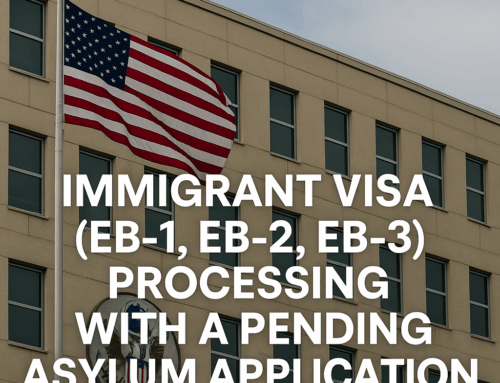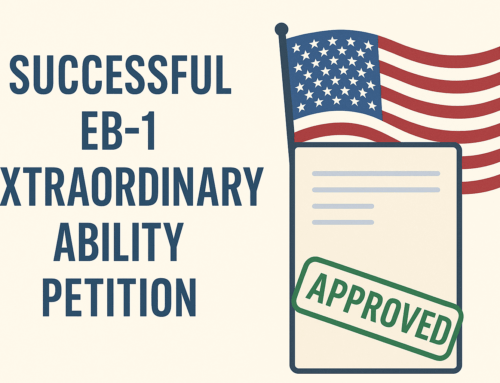 At I.S. Law Firm, we know that Trump re-election may weigh heavily on many immigrants. With the likelihood of certain immigration policies and procedures being revised, it’s essential that we focus on what we can control and plan our strategy to support our clients proactively and compassionately.
At I.S. Law Firm, we know that Trump re-election may weigh heavily on many immigrants. With the likelihood of certain immigration policies and procedures being revised, it’s essential that we focus on what we can control and plan our strategy to support our clients proactively and compassionately.
Here, we’ll break down anticipated changes after President Trump gets sworn in on January 20, 2025, and our ongoing commitment to guiding clients through every step.
Likely Changes to Expect in Immigration Policies and Procedures
- Prosecutorial Discretion (PD)
- We anticipate that PD options will be severely limited or eliminated. For individuals whose case is in immigration court, now is the time to explore PD while it’s still available. To expedite this, we are creating an informative template for our clients explaining PD, the benefits, and whether it aligns with their case goals.
- CBP One Process
- The CBP One process may be eliminated. While procedural requirements and potential legal challenges could slow this change, we’re closely monitoring it to respond promptly.
- Asylum Procedures
- Asylum applications may face stricter procedural scrutiny. DHS Counsel might be directed to rigorously challenge each case, requiring the applicants to present clear, detailed evidence for all aspects of a claim, without agreeing to stipulate any step. We’re prepared to advocate fully for each client in these cases.
- Increased Enforcement
- We expect more aggressive ICE operations, affecting individuals without lawful status in the U.S. Those with prior removal orders may also face heightened risk. We’ll be enhancing our readiness to support and advise clients who may be affected.
- Processing Delays
- Case delays, similar to those experienced during Trump’s first term, are possible due to anticipated staffing and procedural changes. We’ll manage expectations and keep clients informed throughout the process.
- Public Charge Rules
- Stricter public charge criteria may return, affecting green card applicants. These changes could mean more forms and questions. We’re ready to assist with this additional documentation to maintain each client’s case integrity.
- Temporary Protected Status (TPS)
- Some TPS designations may be reduced or terminated, impacting many residents. We will continue to provide guidance on available options.
- Deferred Action for Childhood Arrivals (DACA)
- DACA could again face challenges, though past attempts to eliminate it met with legal opposition. We’ll remain vigilant in advocating for our clients’ rights under DACA.
- Travel Bans
- While less likely than during Trump’s first term, there’s a possibility of travel bans targeting specific countries. We’ll stay informed of any changes that may affect our clients’ travel and immigration options.
- Work Visa Restrictions
- The H-1B and other work visas could face more scrutiny. Changes to eligibility and wage requirements might make it harder for some applicants to qualify. We’ll be prepared to navigate these potential changes.
Possible Positive Developments
- Expansion of Digital Processing
- Efforts to improve efficiency may result in more digital immigration processes, potentially reducing paperwork and processing times.
- Focus on Employment-Based Programs
- There may be continued or expanded pathways for highly skilled workers, particularly those who contribute significantly to the U.S. economy.
- Stability in Family Reunification and Investment-Based Immigration
- Significant changes to family reunification or investment immigration are unlikely, with potential for improvements. This is an area where we expect minimal disruption.
- Limitations on Executive Authority
- Large-scale changes to immigration laws require Congressional approval and involve lengthy procedures, limiting the speed of policy shifts and offering clients more stability.
- Judicial Oversight
- Judicial checks and balances play a vital role. Many executive actions could face legal challenges, which may slow or even prevent certain changes from being implemented.
- Continued Advocacy and Support
- Our dedication to client advocacy is steadfast. We remain committed to guiding clients through each challenge with expertise and determination.
Standing by Our Values
We believe in our core principles—the three Cs that define our approach to immigration law: Compassion, Care, and Commitment. As we prepare for these changes, our dedication to supporting clients remains unwavering. We’re here to make a positive impact in their lives, especially during uncertain times.
If you have any questions or need further clarity on these anticipated changes, please don’t hesitate to reach out. You can use this link to schedule a consultation with one of our experienced immigration lawyers to discuss your case or to find out how Trump presidency may affect your immigration options: https://islawfirm.com/consultation/






